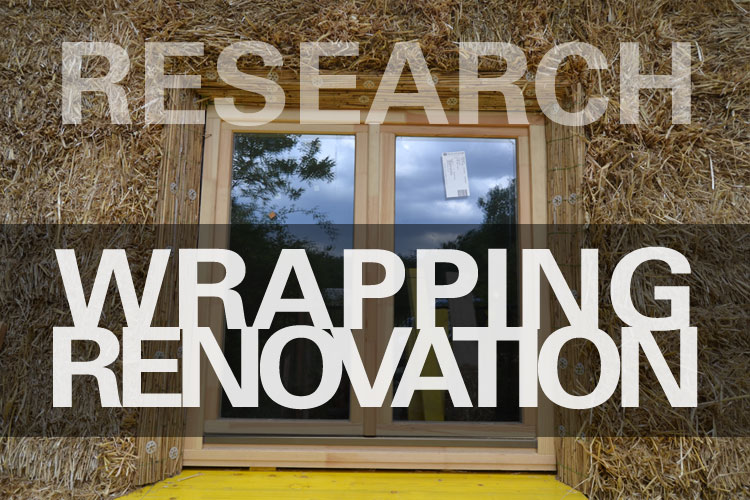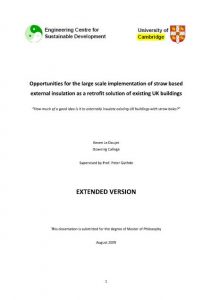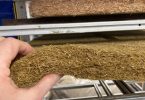The 28 million UK buildings, through their lifecycle, exert a significant pressure on our environment. They are responsible for almest 50% of the UK’s energy consumption and greenhouse gas emissions. At least 80% of existing domestic buildings and 60% of existing non-domestic buildings will still be in use in 2050.
Facing the combined challenges of energy security, climate change mitigation and adaptation, sustainable use of natural resources and fuel poverty requires approximately 700,000 buildings tobe made significantly more energy efficient per year over the next 40 years. This is unprecedented.
Amongst other measures this will require a radical improvement of existing buildings thermal envelope to reduce the need for space heating and cooling which represents half of buildings energy use in the UK. This dissertation examines the opportunities for doing so by insulating existing buildings externally with straw bales as a wall retrofit solution.
Straw bales are advocated as local, healthy, cheap and renewable materials. However, what is sustainable at a small scale may not be on at a larger scale. Through a combination of desk based research and interviews this dissertation is exploring the current spread of straw bale external insulation (SBEI) systems as weil as their performance. Barriers and drivers for the establishment and large scale implementation of SBEI in the UK are identified. The suitability and scope for using SBEI are investigated from a building typology and ownership point of view. The implications for the agricultural industry are examined as straw is a by-product for which an increasing number of potentially competing industrial end-uses are being developed such as straw burning power stations or feedstock for the production of bio-fuels.
After having looked at it at a micro and macro level, this dissertation concludes by estimating how much of a good idea it is to retrofit existing buildings with SBEI systems and in which circumstances this can be a viable alternative.
Authors: Keven Le Doujet, Downing College
Supervised by Prof. Peter Guthrie
This dissertation is submitted for the degree of Master of Philosophy
Date: August2009







